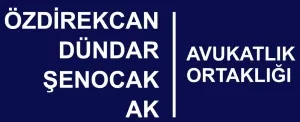1. Introduction
The Turkish Competition Board (the "Board") has recently rendered a decision1 to not apply any administrative fines on certain companies, considering that any such application would be a breach of the ne bis in idem2 principle (the "Decision"). Indeed, this principle proposes to avoid double prosecutions and/or double punishments against a same person for the same facts3.The Decision sheds light not only on the recent perspective of the Board in examining the ne bis in idem defence statements but also on its approach for the statute of limitation assessments. This article merely focuses on the ne bis in idem principle of the Decision and how it is applied by the Board under Turkish competition law.
2. Facts of the Decision
Back in 2009, the Board dismissed the complaints in respect of 12 companies regarding an alleged collusion between new automobile producers and distributors to increase prices and to restrict the supply of automobiles (the "Dismissal Decision") on the grounds that there was insufficient evidence to initiate an investigation. The Board nevertheless launched an investigation on the same allegations in respect of 19 other companies and imposed a fine on 15 of those companies for their anti-competitive behaviours through sharing future information and projections such as price, production and sales information within the body of two associations (the "Automotive Decision").
Although the Dismissal Decision of the Board was taken before the 13th Circuit of Council of State, the court ruled against the applicant party and upheld the Dismissal Decision. The decision of the 13th Circuit of Council of State was appealed to the Plenary Session of the Administrative Law Chamber of the Council of State (IDDK). The IDDK reversed such decision by indicating that an investigation should also have been launched by the Board against the redeemed 12 companies that are subject to the Dismissal Decision (the "Decision of Reversal") since they were also members of the association mentioned in Automotive Decision and should have been cleared of any suspicion through an investigation.
In line with the Decision of Reversal, the 13th Circuit of Council of State reversed the Dismissal Decision. Accordingly, a new investigation was launched by the Board against Baylas Otomotiv A.S., Chevrolet Otomotiv Ticaret Ltd. Sti., Dogus Otomotiv Servis ve Tic. A.S., Ford Otomotiv Sanayi A.S., General Motors Türkiye Ltd. Sti., Honda Türkiye A.S., Hyundai Assan Otomotiv San. ve Tic. A.S., Mais Motorlu Araçlar Imal ve Satis A.S., Nissan Otomotiv A.S., Peugeot Otomotiv Pazarlama A.S., Tofas Türk Otomobil Fabrikasi A.S., Toyota Türkiye Pazarlama ve Satis A.S. to find out whether such companies breached the Competition Law No 4054 (the "Competition Law") on 26 March 2020 for acts carried out during 2009.
3. Applicability of Ne Bis In Idem Principle
The defence counsel of the above-mentioned companies subject to this new investigation stated that the claims alleged by the Board were already dismissed through the Dismissal Decision. Hence, the latter investigation should be construed as a second proceeding for the same facts and any related punishment would not comply with the ne bis in idem principle.
The Board stated in the Decision that the ne bis in idem principle is one of the fundamental principles of criminal law and is acknowledged as a fundamental human right as per the European Convention on Human Rights. Further, the Board stated that it is accepted in international law that the principles of criminal law shall also be applied to competition law. According to the Board, since the administrative fine to be applied throughout competition law proceedings are also penalties, the ne bis in idem principle which originates from the criminal law will be applicable in respect of the competition law breaches.
The Board also referred to one of its precedents (so called Mey Içki Decision4), where the Board concluded that it is not possible to re-impose punishments for the same activities that took place in the same market, under the same qualifications and within the same period of time. Therefore, the Board decided to take the defence of the companies into consideration.
4. Criteria for the Application of Ne Bis In Idem Principle
In the Decision, to determine the criteria for the application of the ne bis in idem principle, the Board cites the Court of Justice of European Union's Aalborg Portland decision5. As regards observance of the principle ne bis in idem, its application is subject to the following three conditions:
- identity of the facts;
- unity of offender; and
- unity of the legal interest protected.
Under that principle, therefore, the same person cannot be sanctioned more than once for a single unlawful course of conduct designed to protect the same legal asset.
5. Decision of the Board
As regards the first condition (i.e. identity of the facts), the Board looked for the definitions of the relevant product and geographical market, the subject matter of the cases and the evidence and documents submitted/collected during such investigations. Regarding the "unity of legal interest" condition, the Board compared the alleged competition law breaches between two cases. Last but not least, with respect to "the unity of offender, the Board reviewed the parties to both investigations.
The Board has assessed the facts and evidence of the case on the basis of the abovementioned three conditions and each one of the conditions was met with respect to 11 companies subject to the investigation. Accordingly, as a result of the investigation, the Board decided that no fines should be applied in respect of any of the parties6.
6. Conclusion
This decision reflects from competition law perspective the settled case-law which sets out the key considerations for the applicability and implementation of the ne bis in idem principle under Turkish law. Further, the decision highlights the interdisciplinary nature of competition law and presents opportunities to include defences as to the application of the general principles of law during competition law proceedings.
Footnotes
1. The Decision of the Board dated 26.08.2021 and numbered 21-40/595-290.
2. The ne bis in idem is a criminal law principle under which a real or legal person cannot be punished and be subject to several procedures twice for the same facts.
3. Enrique Vergara Vial, "Ne bis in idem", Global Dictionary of Competition Law, Concurrences, Art. N° 86490
4. The Decision of the Board dated 16.02.2017 and numbered 17-07/84-34.
5. Aalborg Portland and Others v. Commission, Joined Cases C-204/00 P, C-205/00 P, C-211/00 P, C-213/00 P, C-217/00 P, C-219/00 P.
6. As regards the last of the 12 companies, Chevrolet Otomotiv Ticaret Ltd. Sti., no administrative fines were imposed because the collected evidence did not indicate or prove a breach of competition law.
The content of this article is intended to provide a general guide to the subject matter. Specialist advice should be sought about your specific circumstances.



